|
AUCD's National Center on Disability in Public Health Working for You
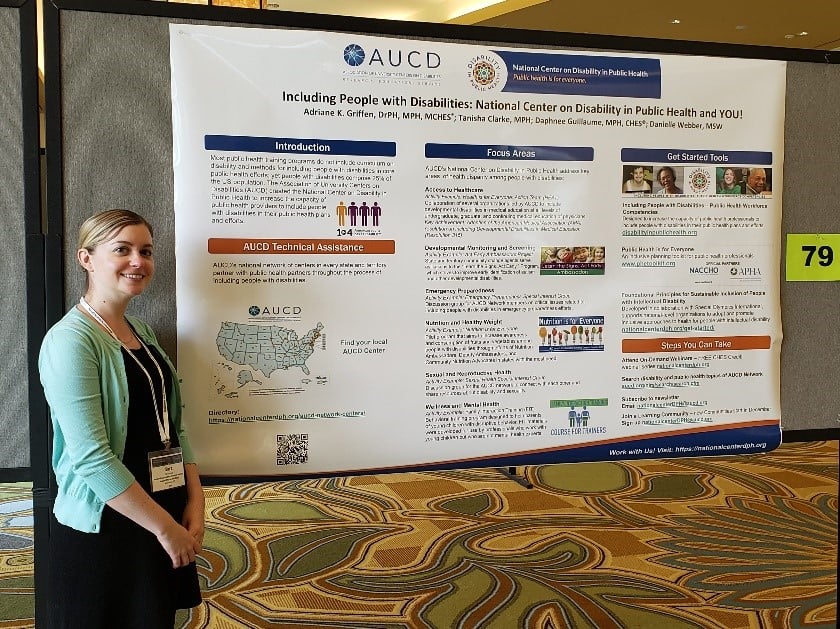 AUCD's National Center on Disability in Public Health (NCDPH) builds capacity by encouraging collaboration between public health partners and AUCD's Network Centers. Key areas of health disparity serve as the focus areas for this National Center and include: Access to Healthcare, Developmental Monitoring and Screening, Emergency Preparedness, Nutrition and Healthy Weight, Wellness and Mental Health, and Sexual and Reproductive Health. This National Center uses evidence-based strategies to develop and increase the ability of public health professionals to include people who have disabilities. Examples of our work include outreach to public health partners, such as the National Association of County and City Health Officials (NACCHO) annual conference, and technical assistance and support for the current cohort of Act Early Ambassadors. Interested in working with us? Need help navigating disability inclusion strategies with health partners? Set up an introductory call with one of our team today! And check out the National Center's website for more information. AUCD's National Center on Disability in Public Health (NCDPH) builds capacity by encouraging collaboration between public health partners and AUCD's Network Centers. Key areas of health disparity serve as the focus areas for this National Center and include: Access to Healthcare, Developmental Monitoring and Screening, Emergency Preparedness, Nutrition and Healthy Weight, Wellness and Mental Health, and Sexual and Reproductive Health. This National Center uses evidence-based strategies to develop and increase the ability of public health professionals to include people who have disabilities. Examples of our work include outreach to public health partners, such as the National Association of County and City Health Officials (NACCHO) annual conference, and technical assistance and support for the current cohort of Act Early Ambassadors. Interested in working with us? Need help navigating disability inclusion strategies with health partners? Set up an introductory call with one of our team today! And check out the National Center's website for more information.
Need Category I CECHs/CEUs?
 The National Center on Disability in Public Health launched a three-part webinar series focused on; evidence-based strategies of the National Center and how participants can be involved; evidence-based approaches to build capacity towards inclusion of people who have disabilities in health promotion efforts; and management strategies that support inclusion and action plans that sustain change. Continue Reading... The National Center on Disability in Public Health launched a three-part webinar series focused on; evidence-based strategies of the National Center and how participants can be involved; evidence-based approaches to build capacity towards inclusion of people who have disabilities in health promotion efforts; and management strategies that support inclusion and action plans that sustain change. Continue Reading...
AUCD NEWS & EVENTS
Haben Girma to Speak at AUCD2019
November 17-29, 2019, Washington DC
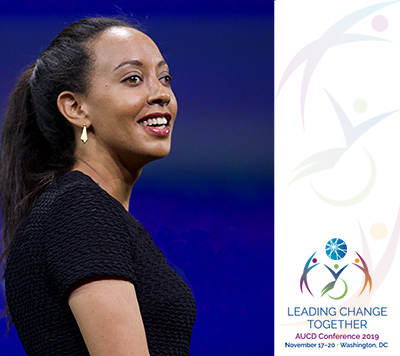 Haben Girma will speak at this year's AUCD2019 opening plenary panel along with other leaders in the disability space, to discuss her lived experience, what leading change together means to her, and how we can elevate the conversation around the rights of people with disabilities and their families to bring about change. Continue Reading... Haben Girma will speak at this year's AUCD2019 opening plenary panel along with other leaders in the disability space, to discuss her lived experience, what leading change together means to her, and how we can elevate the conversation around the rights of people with disabilities and their families to bring about change. Continue Reading...
Board President Amy Hewitt Testifies at the Reauthorizing Autism CARES Act of 2019 Hearing
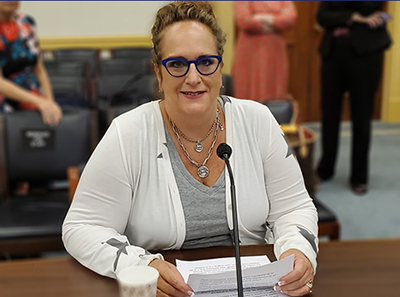 Amy Hewitt, AUCD Board President and Director of the Institute on Community Integration, University of Minnesota, gave a powerful testimony on the importance of reauthorizing Autism CARES at the Energy and Commerce Committee Hearing on Tuesday, June 25, 2019."I understand the importance of these issues as a family member, too." Continue Reading... Amy Hewitt, AUCD Board President and Director of the Institute on Community Integration, University of Minnesota, gave a powerful testimony on the importance of reauthorizing Autism CARES at the Energy and Commerce Committee Hearing on Tuesday, June 25, 2019."I understand the importance of these issues as a family member, too." Continue Reading...
Access to Healthcare
Iowa UCEDD Health Provider Training Program Yields Successful Outcomes
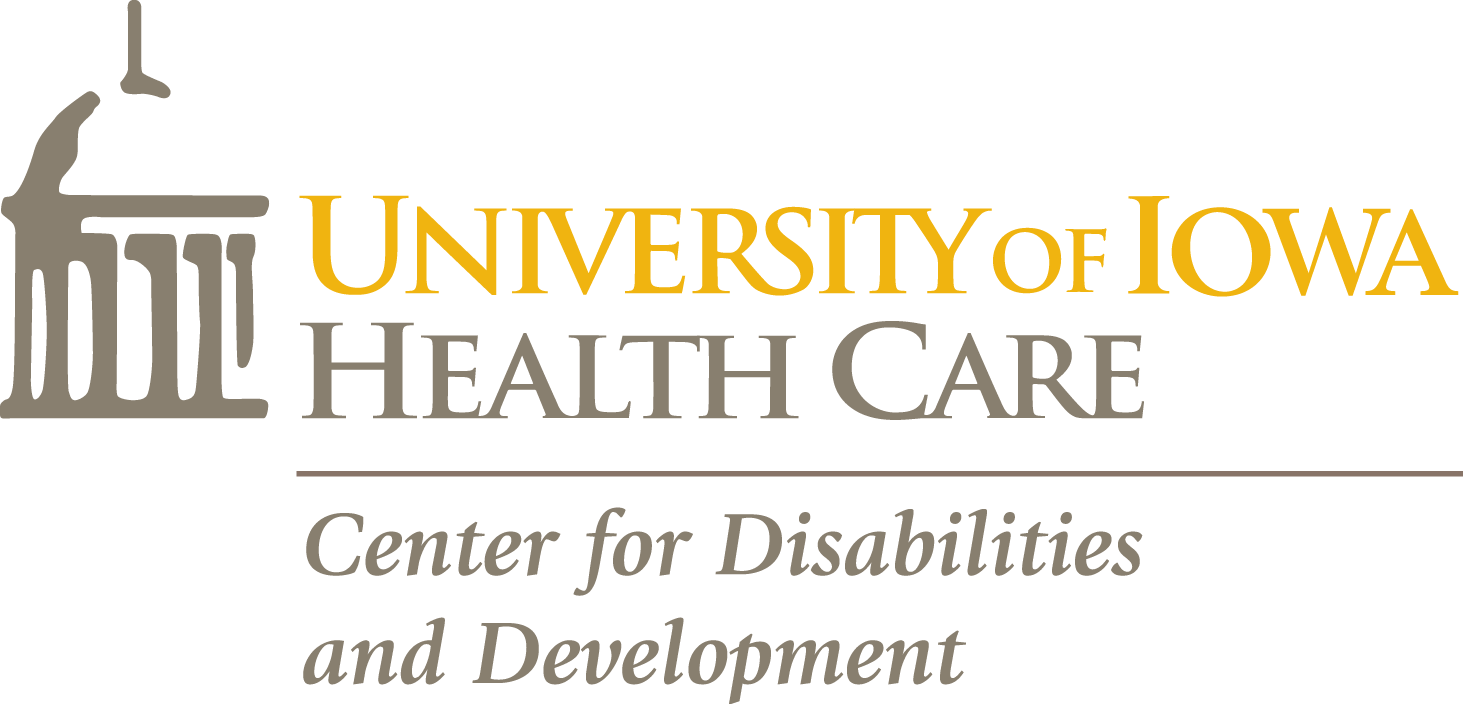 People with disabilities often have trouble accessing quality health care due to medical staff that may have limited understanding of how to communicate with people with disabilities, the experience of living with a disability, and lack of accommodations. Iowa's University Center for Excellence on Developmental Disabilities (UCEDD) created a health care provider training program designed to improve health care access in 2005, with funding from the Iowa Department of Public Health's state Disability and Health grant. Continue Reading... People with disabilities often have trouble accessing quality health care due to medical staff that may have limited understanding of how to communicate with people with disabilities, the experience of living with a disability, and lack of accommodations. Iowa's University Center for Excellence on Developmental Disabilities (UCEDD) created a health care provider training program designed to improve health care access in 2005, with funding from the Iowa Department of Public Health's state Disability and Health grant. Continue Reading...
The Health Impact of Tobacco Use among People with Disabilities [Archived Webinar]
 In New York State, there are slightly more than three million adults with disabilities, and people with disabilities have higher rates of tobacco use than other adults. People with disabilities are at increased risk for smoking-related illness experience poorer health outcomes and are less likely to receive recommended preventive health care services than other groups. Continue Reading... In New York State, there are slightly more than three million adults with disabilities, and people with disabilities have higher rates of tobacco use than other adults. People with disabilities are at increased risk for smoking-related illness experience poorer health outcomes and are less likely to receive recommended preventive health care services than other groups. Continue Reading...
People with IDD Need Accessible Diabetes Education and Care
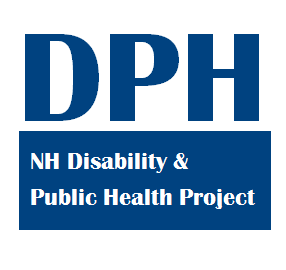 In New Hampshire, adults with diabetes who also have an intellectual or developmental disability (IDD) are less likely than adults without IDD to receive Diabetes Self-Management Education and they also may not get needed health care. The NH Disability & Public Health project's new Disability in Focus data brief shares strategies to improve the health of people with IDD and diabetes. Continue Reading... In New Hampshire, adults with diabetes who also have an intellectual or developmental disability (IDD) are less likely than adults without IDD to receive Diabetes Self-Management Education and they also may not get needed health care. The NH Disability & Public Health project's new Disability in Focus data brief shares strategies to improve the health of people with IDD and diabetes. Continue Reading...
Responsive Practice: Providing Health Care and Screenings to Individuals with Disabilities
 This free, online, on-demand training from the NH Disability & Public Health project teaches healthcare providers to recognize barriers to accessing care and acquire strategies to turn barriers into facilitators to provide disability-competent, responsive care. Continue Reading... This free, online, on-demand training from the NH Disability & Public Health project teaches healthcare providers to recognize barriers to accessing care and acquire strategies to turn barriers into facilitators to provide disability-competent, responsive care. Continue Reading...
Developmental Monitoring
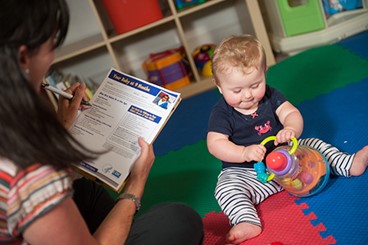
Preparing for the Future: Zika & Long-Term Implications for Systems of Care
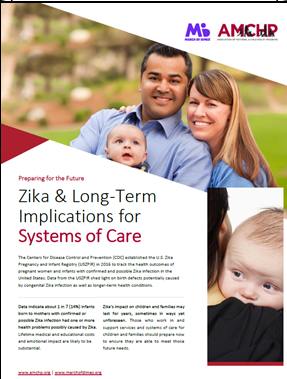 In April 2019, the Association of Maternal & Child Health Programs (AMCHP), in partnership with March of Dimes and CDC, brought together multidisciplinary leaders including AUCD's Senior Director of Public Health & Leadership Dr. Adriane Griffen. The objective was to discuss the long-term needs of children affected by Zika and their families, including systems and programs to support them and their families. This group of thought leaders identified the following key themes related to gaps in and opportunities to improve the systems of care to address the longer-term needs of those affected by Zika. Continue Reading... In April 2019, the Association of Maternal & Child Health Programs (AMCHP), in partnership with March of Dimes and CDC, brought together multidisciplinary leaders including AUCD's Senior Director of Public Health & Leadership Dr. Adriane Griffen. The objective was to discuss the long-term needs of children affected by Zika and their families, including systems and programs to support them and their families. This group of thought leaders identified the following key themes related to gaps in and opportunities to improve the systems of care to address the longer-term needs of those affected by Zika. Continue Reading...
Promoting Healthy Nutrition and Child Development in WIC [Archived Webinar]
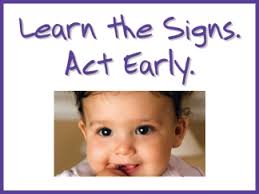 Professionals like those in WIC know that nutrition is critical for a child's physical and developmental growth. This archived webinar features special guest speaker, Maureen Black, Ph.D., who talks about the latest research integrating nutrition and child development. Dr. Black is a pediatric psychologist and international expert in early childhood development. She conducts research in strategies to promote healthy nutrition and child development and to prevent health disparities. This webinar was hosted by NWICA in collaboration with the Centers for Disease Control and Prevention's "Learn the Signs. Act Early." program which offers free developmental milestone checklists and other tools to help engage families in child development and identify developmental concerns early. Continue Reading... Professionals like those in WIC know that nutrition is critical for a child's physical and developmental growth. This archived webinar features special guest speaker, Maureen Black, Ph.D., who talks about the latest research integrating nutrition and child development. Dr. Black is a pediatric psychologist and international expert in early childhood development. She conducts research in strategies to promote healthy nutrition and child development and to prevent health disparities. This webinar was hosted by NWICA in collaboration with the Centers for Disease Control and Prevention's "Learn the Signs. Act Early." program which offers free developmental milestone checklists and other tools to help engage families in child development and identify developmental concerns early. Continue Reading...
E-Learning Module: Autism CARES Act 101
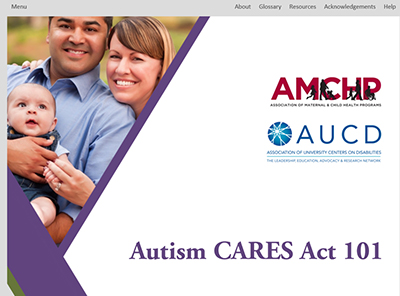 The Association of Maternal & Child Health Programs (AMCHP), in partnership with the Association of University Centers on Disabilities (AUCD), is pleased to share the e-Learning module, "Autism CARES Act 101." This free, self-paced module addresses key facets of the Autism Collaboration, Accountability, Research, Education, and Support (CARES) Act, including grassroots and legislative origins, how it has evolved since 2006, and resulting federally-funded programming. Continue Reading... The Association of Maternal & Child Health Programs (AMCHP), in partnership with the Association of University Centers on Disabilities (AUCD), is pleased to share the e-Learning module, "Autism CARES Act 101." This free, self-paced module addresses key facets of the Autism Collaboration, Accountability, Research, Education, and Support (CARES) Act, including grassroots and legislative origins, how it has evolved since 2006, and resulting federally-funded programming. Continue Reading...
Pediatric Care Coordination Curriculum: An Interprofessional Resource to Effectively Engage Patients and Families in Achieving Optimal Child Health Outcomes, 2nd Edition
 The National Resource Center for Patient/Family-Centered Medical Home (NRC PFCMH) and the National Center for Care Coordination Technical Assistance are pleased to announce the launch of the Pediatric Care Coordination Curriculum, 2nd Edition. The curriculum is designed to build capacity among diverse stakeholders through the following activities: The National Resource Center for Patient/Family-Centered Medical Home (NRC PFCMH) and the National Center for Care Coordination Technical Assistance are pleased to announce the launch of the Pediatric Care Coordination Curriculum, 2nd Edition. The curriculum is designed to build capacity among diverse stakeholders through the following activities:
•Effective implementation of key components of care coordination
•Collaborative communication within inter-professional care teams
•Investment in technology solutions
Continue Reading...
Emergency Preparedness
Emergency Preparation Toolkit for Children and Adults (CT UCEDD/LEND)
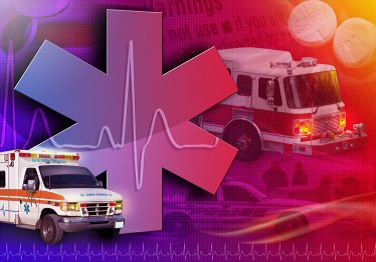 The CT LEND program spends one day at the CT Legislature learning to speak to and educate legislators about issues related to persons with disabilities living in CT. The LEND trainees meet in small groups with individual legislators. One of the groups met with CT State Representative Liz Linehan and discussed emergency preparation for persons with disabilities and shared Flipbook. Continue Reading... The CT LEND program spends one day at the CT Legislature learning to speak to and educate legislators about issues related to persons with disabilities living in CT. The LEND trainees meet in small groups with individual legislators. One of the groups met with CT State Representative Liz Linehan and discussed emergency preparation for persons with disabilities and shared Flipbook. Continue Reading...
ReDiscovery (TX UCEDD)
 The purpose of ReDiscovery is to provide training, technical assistance, and educational materials on long-term recovery services and resources for individuals with disabilities and other access and functional needs affected by Hurricane Harvey. Training and technical assistance are provided to: The purpose of ReDiscovery is to provide training, technical assistance, and educational materials on long-term recovery services and resources for individuals with disabilities and other access and functional needs affected by Hurricane Harvey. Training and technical assistance are provided to:
• Disaster Case Managers,
• Disability-Related Organizations,
• Community-Based Partners, and more
Continue Reading...
Nutrition and Healthy Weight
Registration is Now Open: Feeding Matters' 7th International PFD Conference
January 24-25, 2020
 For more than a decade, the International PFD Conference (IPFDC) has been a leader in providing evidence-based education through intermediate and advanced level sessions from more than 20 internationally renowned feeding experts. Completely virtual in 2020, the 7th IPFDC will be available on-demand to all registrants for 30 days post-conference. Continue Reading... For more than a decade, the International PFD Conference (IPFDC) has been a leader in providing evidence-based education through intermediate and advanced level sessions from more than 20 internationally renowned feeding experts. Completely virtual in 2020, the 7th IPFDC will be available on-demand to all registrants for 30 days post-conference. Continue Reading...
Disability Don't Mean Can't: ‘Busting Down Barriers!' Comic
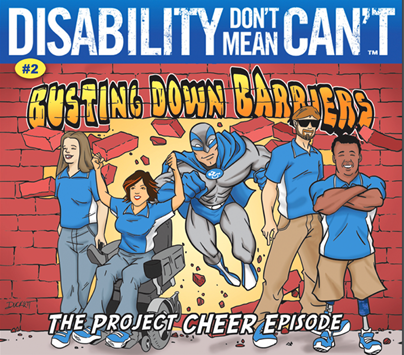 Kentucky's Disability & Health Program Project CHEER (Community Health Education & Exercise Resources) in partnership with Disability Don't Mean Can't are excited to share their comic: "Busting Down Barriers." Disability Don't Mean Can't is a fitness and motivational resource developed by Kentucky native, Michael Carter in Bowling Green. The comic book characters are all real-life individuals with different disabilities working together with support from DDMC man and Project CHEER to be successful at being healthy. Continue Reading... Kentucky's Disability & Health Program Project CHEER (Community Health Education & Exercise Resources) in partnership with Disability Don't Mean Can't are excited to share their comic: "Busting Down Barriers." Disability Don't Mean Can't is a fitness and motivational resource developed by Kentucky native, Michael Carter in Bowling Green. The comic book characters are all real-life individuals with different disabilities working together with support from DDMC man and Project CHEER to be successful at being healthy. Continue Reading...
Tips that People with Disabilities Can Use to Be More Physically Active
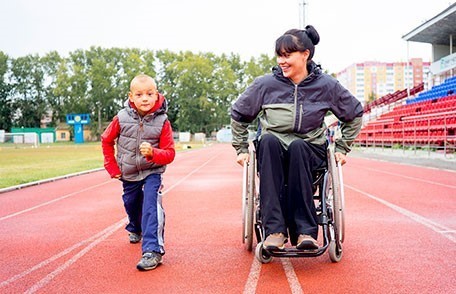 Everybody needs physical activity for good health. Most adults with disabilities are able to participate in physical activity, yet nearly half of them do not get any aerobic physical activity. Adults with disabilities are more likely to have heart disease, stroke, diabetes, or cancer than adults without disabilities. Physical activity can help reduce the impact of these chronic diseases. Continue Reading... Everybody needs physical activity for good health. Most adults with disabilities are able to participate in physical activity, yet nearly half of them do not get any aerobic physical activity. Adults with disabilities are more likely to have heart disease, stroke, diabetes, or cancer than adults without disabilities. Physical activity can help reduce the impact of these chronic diseases. Continue Reading...
Sexual and Reproductive Health

Self-Advocates Speak Up About Sex

Members of Green Mountain Self-Advocates in Vermont held a discussion group about sexuality for the purpose of sharing their thoughts and experiences. Here are their candid responses to a number of questions about the messages they received about sexuality over the years, and why they think sexuality education is important. Continue Reading...
Do disability, parenthood, and gender matter for health disparities?: A US population-based study
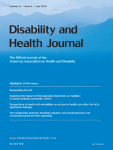 Existing research has documented adverse health outcomes among parents with disabilities relative to parents without disabilities, but little is known about whether parenthood adds unique stress and health consequences for people with disabilities. Less is known about whether the effects of parenthood differ between mothers and fathers with disabilities. Continue Reading... Existing research has documented adverse health outcomes among parents with disabilities relative to parents without disabilities, but little is known about whether parenthood adds unique stress and health consequences for people with disabilities. Less is known about whether the effects of parenthood differ between mothers and fathers with disabilities. Continue Reading...
"He told me it would be extremely selfish of me to even consider [having kids]"
 As more women with spina bifida (SB) enter their reproductive years, the number having children is significantly increasing. However, little is known about their understanding of their ability to get pregnant or their experiences in considering, planning, or interacting with providers during a pregnancy. Continue Reading... As more women with spina bifida (SB) enter their reproductive years, the number having children is significantly increasing. However, little is known about their understanding of their ability to get pregnant or their experiences in considering, planning, or interacting with providers during a pregnancy. Continue Reading...
Become a Sexuality Educator and Trainer [Additional Cities Added]
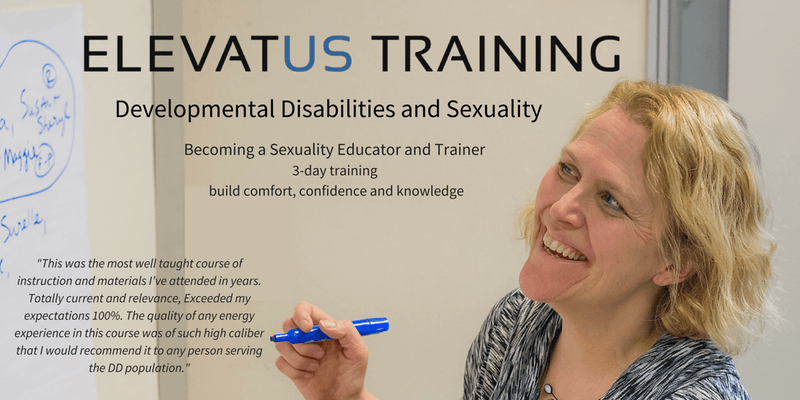 Increase your skill and comfort level when addressing sexuality with people with developmental disabilities. Don't miss this opportunity to get the training and support you need to make a difference in the lives of people with developmental disabilities. Continue Reading... Increase your skill and comfort level when addressing sexuality with people with developmental disabilities. Don't miss this opportunity to get the training and support you need to make a difference in the lives of people with developmental disabilities. Continue Reading...
Wellness and Mental Health

Identifying and Supporting Family Risk Factors
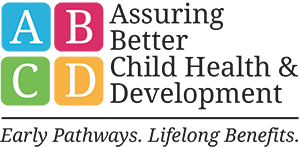 Colorado's Assuring Better Child Health & Development (ABCD) program, whose mission is to align and mobilize pediatric and community agencies to improve early childhood developmental outcomes, hosted their first annual professional development day in June. The theme for the day was "Engaging Our Families and Each Other" with the goal to bring together partners from various areas of our work to connect and establish opportunities for cross-cutting collaboration. Continue Reading... Colorado's Assuring Better Child Health & Development (ABCD) program, whose mission is to align and mobilize pediatric and community agencies to improve early childhood developmental outcomes, hosted their first annual professional development day in June. The theme for the day was "Engaging Our Families and Each Other" with the goal to bring together partners from various areas of our work to connect and establish opportunities for cross-cutting collaboration. Continue Reading...
Mental health challenges and resilience among mothers with intellectual and developmental disabilities
 Mothers with intellectual and developmental disabilities (IDD) frequently experience mental health problems. Yet, they are excluded from broader women's mental health efforts, and few services exist to support their unique mental health needs. Continue Reading... Mothers with intellectual and developmental disabilities (IDD) frequently experience mental health problems. Yet, they are excluded from broader women's mental health efforts, and few services exist to support their unique mental health needs. Continue Reading...
Anxiety and depression in children: Get the facts
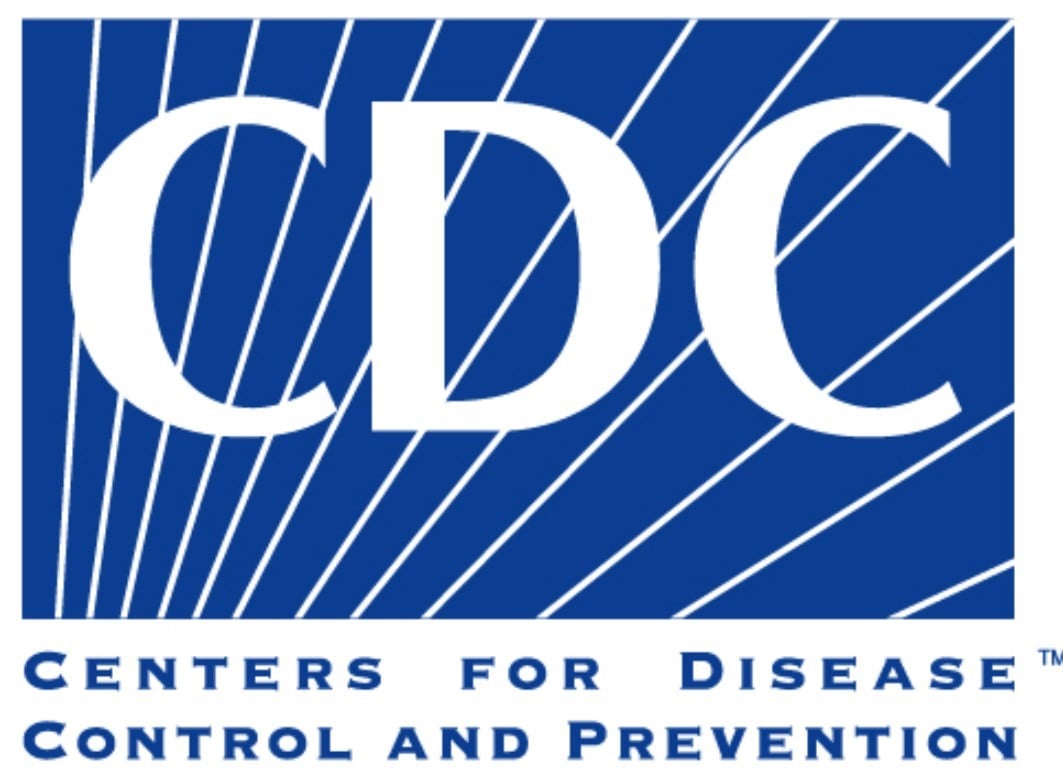 Anxiety and depression affect many children. The rates of diagnosed anxiety and depression appear to have increased over time. In a recent article published in The Journal of Pediatrics, parent/caregiver reported data from the 2016 National Survey of Children's Health (NSCH), showed that 7.1% of children aged 3 - 17 years (approximately 4.4 million) had diagnosed anxiety and 3.2% of children aged 3 - 17 years (approximately 1.9 million) had diagnosed depression. Continue Reading... Anxiety and depression affect many children. The rates of diagnosed anxiety and depression appear to have increased over time. In a recent article published in The Journal of Pediatrics, parent/caregiver reported data from the 2016 National Survey of Children's Health (NSCH), showed that 7.1% of children aged 3 - 17 years (approximately 4.4 million) had diagnosed anxiety and 3.2% of children aged 3 - 17 years (approximately 1.9 million) had diagnosed depression. Continue Reading...
Other Resources
Conference on Health and Active Transportation (CHAT) Joining Forces and Moving Forward
December 11-12, 2019, Washington, DC
 The 2019 Conference on Health and Active Transportation (CHAT), convened by the Transportation Research Board, will bring together an interdisciplinary cadre of practitioners and researchers in urban planning, public health, transportation and civil engineering, health care and health economics. The purpose of this conference is to explore and collaborate on identifying impacts of the health effects of transportation policies, planning, and infrastructure, and to develop an understanding of the institutional opportunities and barriers for considering health within transportation field. Continue Reading... The 2019 Conference on Health and Active Transportation (CHAT), convened by the Transportation Research Board, will bring together an interdisciplinary cadre of practitioners and researchers in urban planning, public health, transportation and civil engineering, health care and health economics. The purpose of this conference is to explore and collaborate on identifying impacts of the health effects of transportation policies, planning, and infrastructure, and to develop an understanding of the institutional opportunities and barriers for considering health within transportation field. Continue Reading...
Call for Proposals - CONNECT #PacRim2020
Submissions are being accepted from June 1, 2019-December 1, 2019
 The University of Hawaiʻi at Mānoa, Center on Disability Studies, in the College of Education, is accepting presentation proposals to be featured at the 35th Annual Pacific Rim International Conference on Disability & Diversity at the Hawaiʻi Convention Center, March 2-3, 2020. The theme of the conference is CONNECT to Create Opportunities. Pac Rim 2020 will connect individuals in the field of disabilities, to build relationships and partnerships between Hawaiʻi and the global community. Continue Reading... The University of Hawaiʻi at Mānoa, Center on Disability Studies, in the College of Education, is accepting presentation proposals to be featured at the 35th Annual Pacific Rim International Conference on Disability & Diversity at the Hawaiʻi Convention Center, March 2-3, 2020. The theme of the conference is CONNECT to Create Opportunities. Pac Rim 2020 will connect individuals in the field of disabilities, to build relationships and partnerships between Hawaiʻi and the global community. Continue Reading...
The Economic Impact of Pediatric Feeding Disorder
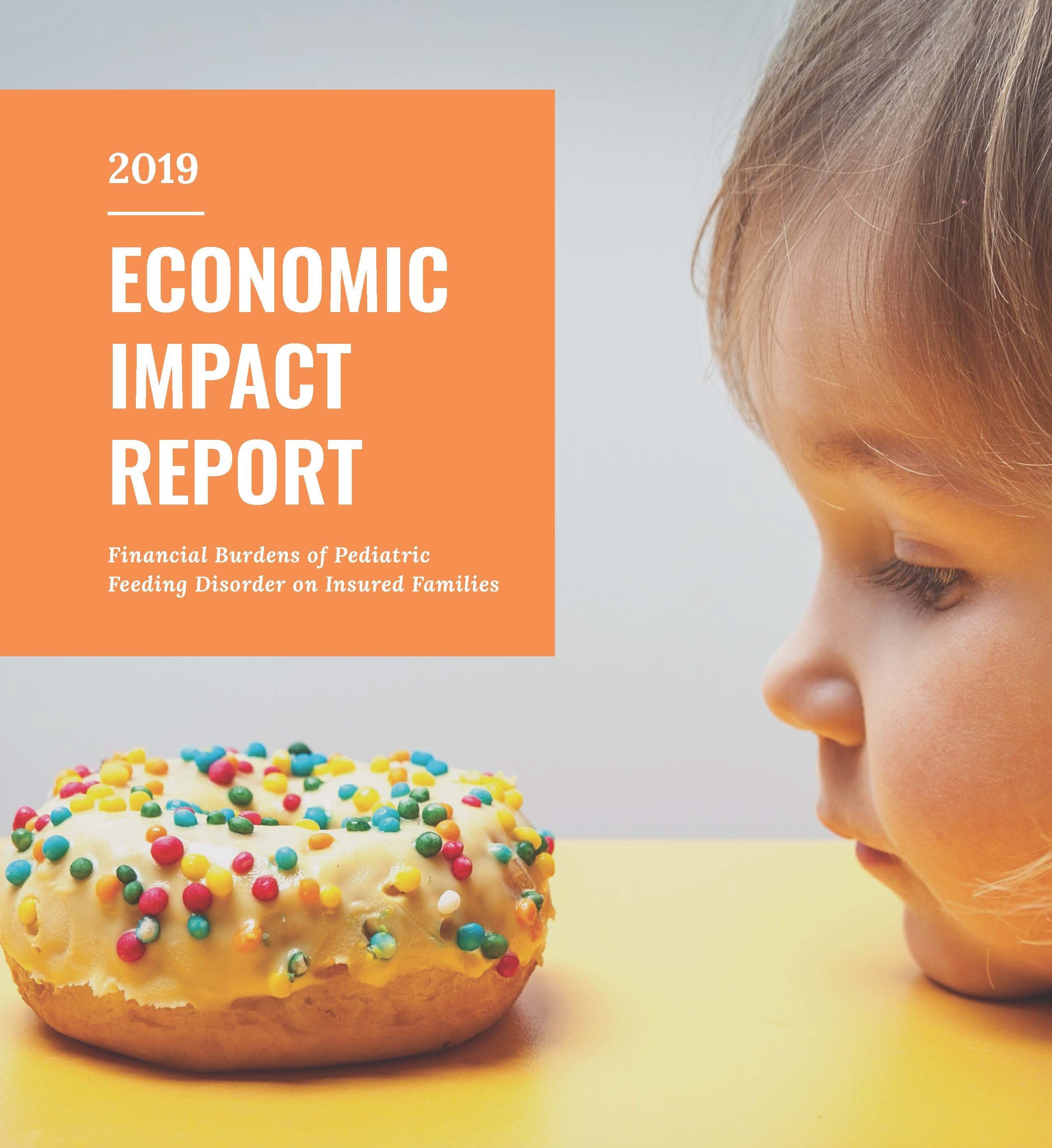 From medications, supplies, and expert childcare to specialized education, travel to appointments, and lost time, managing pediatric feeding disorder (PFD) can come with significant financial challenges. While Feeding Matters' Economic Impact Study quantifies the associated costs, medical and otherwise, incurred by families navigating PFD the new Family Assistance Program offers financial support to meet the high costs of treating PFD. Continue Reading... From medications, supplies, and expert childcare to specialized education, travel to appointments, and lost time, managing pediatric feeding disorder (PFD) can come with significant financial challenges. While Feeding Matters' Economic Impact Study quantifies the associated costs, medical and otherwise, incurred by families navigating PFD the new Family Assistance Program offers financial support to meet the high costs of treating PFD. Continue Reading...
|


